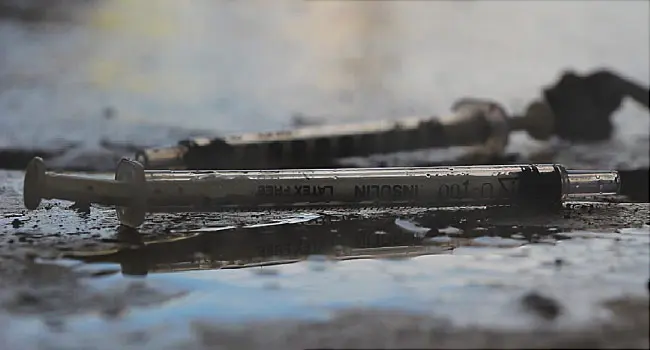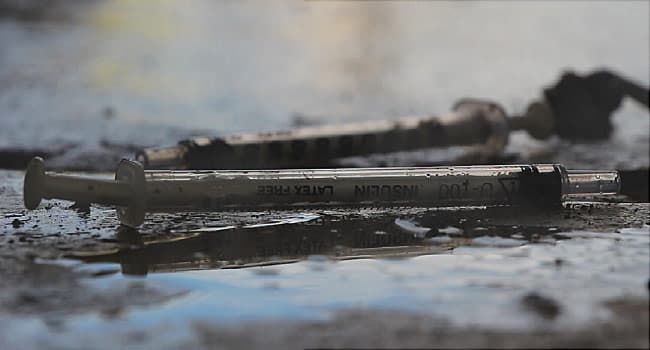By Sara Novak
#Pandemic conditions were ripe for a #mentalhealth disaster: #Isolation, a crashing economy, and a mystery illness taking aim with deadly accuracy. But while instances of #depression and #anxiety increased, there seemed to be one comforting prospect: In the past 2 years, #suicide numbers have dropped.
“We all thought that #suicides would go up. It was a perfect storm: the lack of medical care, increased #stress and bereavement. But when the numbers started coming in, they were actually decreasing,” says Paul Nestadt, MD, a #psychiatrist with Johns Hopkins University in Baltimore.
Experts were optimistic at first, pointing to a number of potential drivers for the 3% drop in #suicides nationally. Though it may not seem logical, #suicide rates tend to go down during times of crisis, says Nestadt, whose research focuses on #suicide. Studies of #suicides during World War II and just after 9/11 found similar decreases.
An overarching focus on #mentalhealth during the #pandemic may also have played a role. More people were seeking treatment during #mentalhealthcrises, both in person and through telehealth.
While Nestadt agrees that these things did play a role, he thinks the numbers could also be misleading. #Suicides, he says, could be hidden by the nation’s #opioid crisis.
Only a quarter of those who die by #suicide leave a note. And if they’re found dead of an overdose, it’s hard to know whether it was an accident or not, he says. Research has also shown that those with #substanceabuseproblems are more likely to die by #suicide than other groups.
“It could be that overdose deaths are going up and they’re hiding the number of #suicides,” he says.
#James Donaldson notes:
Welcome to the “next chapter” of my life… being a voice and an advocate for #mentalhealthawarenessandsuicideprevention, especially pertaining to our younger generation of students and student-athletes.
Getting men to speak up and reach out for help and assistance is one of my passions. Us men need to not suffer in silence or drown our sorrows in alcohol, hang out at bars and strip joints, or get involved with drug use.
Having gone through a recent bout of #depression and #suicidalthoughts myself, I realize now, that I can make a huge difference in the lives of so many by sharing my story, and by sharing various resources I come across as I work in this space. #http://bit.ly/JamesMentalHealthArticle
Order your copy of James Donaldson’s latest book,
#CelebratingYourGiftofLife:
From The Verge of Suicide to a Life of Purpose and Joy
Ian Rockett, PhD, is an epidemiologist at West Virginia University. He says #drugoverdoses muddy the waters for medical examiners, who are overworked and often poorly funded.
His research, which was published last year in The Lancet’s EClinicalMedicine, found that #suicides in Western states like Idaho, Montana, and Wyoming seemed higher than in other states because of the use of firearms. In contrast, in parts of the country where the #opioid epidemic was raging, deaths resulting from #drugoverdoses were often classified by coroners as “undetermined,” likely missing those that were actually #suicides. This artificially deflates national numbers.
Like Nestadt, Rockett is skeptical that #suicide deaths dropped during the #pandemic at the very same time that overdose deaths were up by 29% from 2020 to 2021.
Evidence needed to confirm an overdose #suicide, like a note or other signs of #suicidalbehavior, often can’t be found when medical examiners are determining the cause of death, says Rockett.
To better document cases, he’s been advocating the use of a method known as “psychological autopsy,” which combines an examination of medical and legal records with in-depth interviews of family and friends of the deceased. The tool was used effectively by the Los Angeles County coroner from the 1950s until the 1980s to uncover a number of barbiturate #suicides but was later dropped because of cost.
“If we’re really invested in obtaining high-quality #suicide data, this can help,” he says.
Hilary S. Connery, MD, an assistant professor of psychiatry at Harvard Medical #School, says the data in certain parts of the country with better access to #mentalhealthcare and stronger gun control laws may show a reduction. Research has shown that limiting access to firearms reduces #suicides.
But Connery isn’t convinced that the data reflects the true numbers. Health systems hit hard by the #pandemic were already strained by drug deaths.
“These resources are lacking,” she says, “and in many parts of the country, cause-of-death investigations hardly happen at all.”
#Suicides and #drugoverdoses can happen in clusters when people become desensitized to death, says Connery, who’s also the clinical director of McLean Hospital’s Division of #Alcohol, #Drugs and Addiction in Belmont, MA.
For example, when someone dies by #suicide, it increases the risk that their peers will do the same thing because of exposure to it. This is especially true when other members of the group are faced with similar stressors like war, community violence, poverty, and exclusion.
Accurate real-time surveillance data would help identify people at risk, Connery says.
“We need to stop working in silos, because suicides and overdoses are related issues with similar risk factors, and in many cases, prevention may need to be overlapping,” she says.
Jill Harkavy-Friedman, PhD, who leads the #AmericanFoundationforSuicidePrevention’s research grant program, believes the increase in overdose deaths is largely due to #fentanyl, a highly toxic substance that is being used to cut #heroin and #cocaine. She agrees that a portion of the 100,000 #drug deaths in 2020 may have been intentional but says suicides likely did decrease overall due to increased attention to #mentalhealth.
“We encouraged people to seek help when they were in distress, and it seems like they were listening,” she says.
Harkavy-Friedman also notes that the numbers were already going down in 2019, partially because we’re more open to having conversations about #suicide, a subject that was once off limits.
“We’re more open to discussing it in a way that makes people feel less alone,” she says.
For the groups that have access to care, it seems to be working. Experts generally agree that there are more tools available and a better understanding of #suicide today than in times past. Still, the data may not be reflecting what’s truly going on in our society, says Connery.
“The entire country is notified almost immediately when romaine lettuce is contaminated with E. coli, for example,” she says. “This same model could be used to prevent #suicide. With similar real-time data, we could step in and stop at least some of these deaths.”
The undue #stigma associated with both #drugaddiction and #suicide is preventing people from getting the help they need, and it’s causing an unnecessary loss of life, says Connery. “In the end, whether it’s a #suicide or an overdose, these people are still ending up dead, often at a very young age.”
If you or someone you know is considering #suicide, please contact the #NationalSuicidePreventionLifeline at 1-800-273-TALK (8255), text “STRENGTH” to the Crisis Text Line at 741-741, or go to suicidepreventionlifeline.org.





